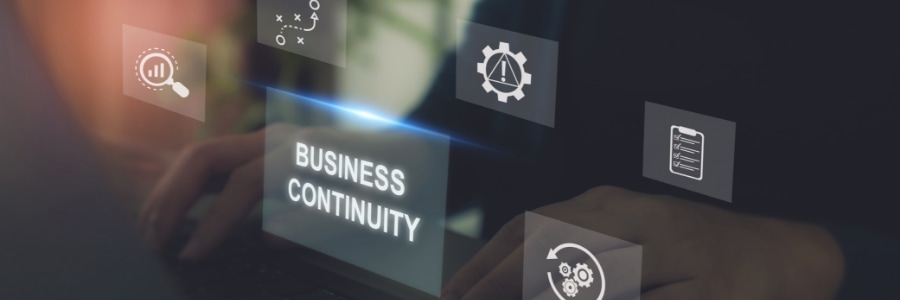The shift to multicloud is becoming a common strategy for enterprises seeking more flexible, resilient, and high-performance solutions. Leveraging services from multiple cloud providers enables businesses to customize their IT infrastructure, making sure it aligns more effectively with their specific requirements.
Tech Insights & Resources
Tech Insights built for architecture, engineering, construction, and other San Francisco Bay Area businesses who want to deliver work on time without IT disruptions. Get practical guides, cybersecurity tips, and workflow improvements for your team.
5 Strategies to keep your business running during disruptions

Businesses are vulnerable to a range of disruptions, including server failures, unexpected power outages, and natural disasters. To mitigate the damage and ensure your company remains operational, it’s crucial to have a business continuity plan (BCP). This article outlines five key BCP tactics every company should implement — strategies that can save you time, money, and valuable resources when things go wrong.
Think you can spot a phishing email? This new trick is harder to catch

Many people are getting better at spotting phishing attacks from outside sources. But what if the attack appears to come from within your own company? A recently discovered vulnerability in Microsoft 365 is being used to bypass traditional security, making it easier than ever for hackers to send you convincing fake emails that slip past your defenses.
Why The 2025 SharePoint Hack Should Make You Rethink Your IT Stack

Key Takeaways:
A critical vulnerability was recently discovered in on-premise versions of Microsoft SharePoint, allowing attackers to gain unauthorized access to sensitive systems.
Cloud-based SharePoint (Microsoft 365) is not affected.
The breach impacted thousands of systems globally, including governments, universities, and healthcare providers.
Still on Windows 10? Here’s What Your Business Must Know Before the 2025 Deadline

Key Takeaways
Windows 10 support ends October 14, 2025.
Microsoft is still offering free upgrades to Windows 11.
Delaying puts your business at risk for security issues, compliance problems, and app disruptions.
Working with an MSP ensures a smooth upgrade with no downtime or compatibility surprises.

